New Delhi, Sep 23 (VOICE) Prime Minister Narendra Modi on Sunday congratulated Anura Kumara Dissanayake for his victory in the Sri Lankan Presidential elections and said he looks forward to working closely with him to further strengthen the India-Sri Lanka ties.
“Congratulations @anuradisanayake, on your victory in the Sri Lankan Presidential elections. Sri Lanka holds a special place in India’s Neighbourhood First Policy and Vision SAGAR. I look forward to working closely with you to further strengthen our multifaceted cooperation for the benefit of our people and the entire region,” Prime Minister Modi said in a post on social media platform X late Sunday.
Earlier, India’s High Commissioner to Sri Lanka Santosh Jha called on Dissanayake and conveyed greetings from India’s leadership.
“HC @santjha called on Sri Lanka’s President-elect @anuradisanayake. Conveyed greetings from India’s leadership and congratulated him on winning the people’s mandate. India as Sri Lanka’s civilisational twin is committed to further deepen ties for the prosperity of the people of our two countries,” the High Commission of India in Colombo said in a post on X.
Sri Lanka’s Marxist-leaning leader Dissanayake of Janatha Vimukthi Peramuna (JVP) party will be sworn in as the country’s ninth – also, the first Leftist – President on Monday, following his triumph in the island nation’s first presidential election since its worst-ever economic crisis.
The result was decided Sunday evening after Sri Lanka’s first-ever presidential run-off with the counting of second preference votes following both Dissanayake and Samagi Jana Sandhanaya candidate Sajith Premadasa failing to get the required percentage of votes.
“The dream we have nurtured for centuries is finally coming true. This achievement is not the result of any single person’s work, but the collective effort of hundreds of thousands of you. Your commitment has brought us this far, and for that, I am deeply grateful. This victory belongs to all of us,” 55-year-old Dissanayake, also popularly known as AKD, said in a post on X after the final result was announced by the Lankan Election Commission post 7 PM Sunday.
According to Sri Lanka’s Election Commission, Dissanayake won the presidency with 42.31 per cent of the vote with Premadasa finishing second and incumbent President Ranil Wickremesinghe, who was eliminated after the first round, in third position.
“Our journey here has been paved by the sacrifices of so many who gave their sweat, tears, and even their lives for this cause. Their sacrifices are not forgotten. We hold the scepter of their hopes and struggles, knowing the responsibility it carries. The millions of eyes filled with hope and expectation push us forward, and together, we stand ready to rewrite Sri Lankan history,” the Presidential race winner mentioned.
It is expected that the new President will take oath in a ceremony at the Presidential Secretariat on Monday.
“This dream can only be realized with a fresh start. The unity of Sinhalese, Tamils, Muslims, and all Sri Lankans is the bedrock of this new beginning. The New Renaissance we seek will rise from this shared strength and vision. Let us join hands and shape this future together!” said Dissanayake.
The leader has been a key figure in Sri Lanka’s political discourse for some time now.
The election, held on Saturday, saw Dissanayake lead over veteran political figures such as incumbent President Ranil Wickremesinghe and Opposition leader Premadasa.
Born on November 24, 1968, in the village of Thambuththegama, Anuradhapura District, Dissanayake’s early life was modest – his father was a labourer, and mother a housewife.
He became the first student from Thambuththegama Central College to gain university entrance, initially attending the University of Peradeniya before transferring to the University of Kelaniya, where he earned a degree in Physical Science in 1995.
Dissanayake’s political career began in 1987 when he joined the Janatha Vimukthi Peramuna, a Marxist party, during the 1987-1989 JVP insurrection.
Over the years, he rose through the party ranks, becoming its national organiser in 1995 and joining the central working committee. He was elected to Parliament in 2000 through the JVP’s national list and re-elected in 2001.
By 2004, the JVP had allied with the Sri Lanka Freedom Party (SLFP), forming the United People’s Freedom Alliance (UPFA). Dissanayake was elected to Parliament from Kurunegala District and was appointed Minister of Agriculture, Livestock, Land, and Irrigation in the joint SLFP-JVP government.
He resigned in 2005, along with other JVP ministers, over disagreements with former Sri Lankan President Chandrika Kumaratunga’s government regarding tsunami relief coordination with the LTTE.
In 2014, Dissanayake succeeded Somawansa Amarasinghe as leader of the JVP. In 2019, under his leadership, the JVP formed the National People’s Power (NPP) alliance with Dissanayake running for President, finishing third with three per cent of the vote share.
According to some media reports, Dissanayake’s influence grew significantly during the 2022 economic crisis, which led to widespread shortages and soaring inflation.
His NPP alliance, along with the JVP, played a prominent role in the mass protest movement known as the ‘Aragalaya’ (Struggle), which culminated in former Sri Lankan President Gotabaya Rajapaksa’s resignation.
Though no single party officially led the protests, the JVP’s involvement was widely reported. Dissanayake has been vocal about the movement’s partial success, criticising the lack of parliamentary dissolution and accusing the political elite of maintaining the same corrupt structures.
“Looting, corruption and defying court orders continue to happen even to this day. The Aragalaya achieved only half a victory as Parliament was not dissolved. So, we hope the other half can be achieved in this presidential election,” he said, responding to questions about his party’s involvement in the movement, in an interview with Daily Mirror.
He has also faced allegations that some foreign countries, particularly China, are backing his campaign. However, in the interview, he firmly denied these claims, stating that his visits to China were funded by the respective government, but no foreign funds had been funnelled into his campaign.
“We are a small force, but we cannot be bought over by any country or organisation,” he said, adding that the accusations were spread by leaders who themselves had been compromised.
Dissanayake now stands on the cusp of making history as the country’s first leftist President, heralding what could be a significant political shift for the South Asian island nation.
–VOICE
sha/


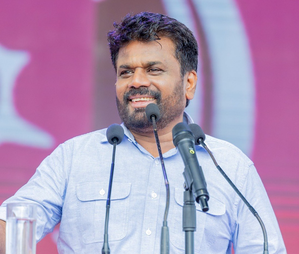
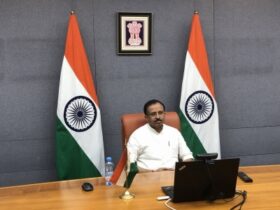


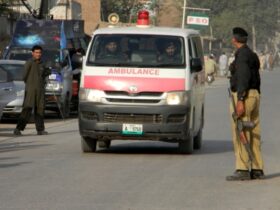



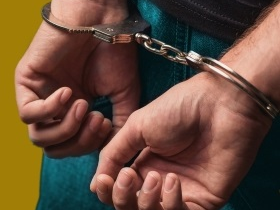
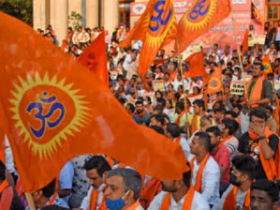
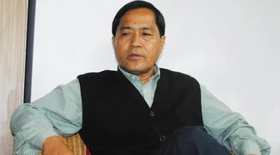
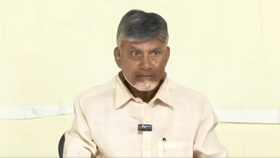
Leave a Reply